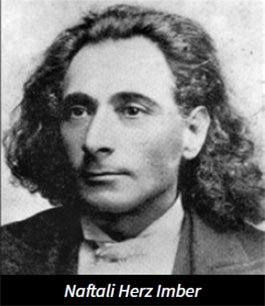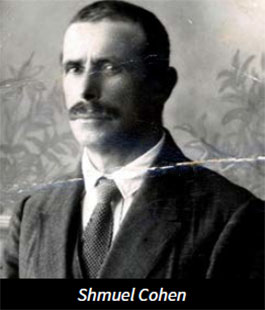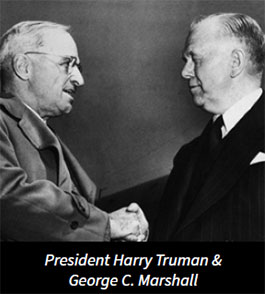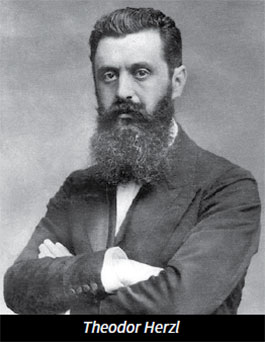Sign of Israel
A Long-Awaited Promise
By Tim Moore

All of us have specific memories that are indelibly impressed in our minds. Our wedding. The birth of a child. Or perhaps a moment of tragedy.
Whole societies can experience significant emotional events that become seared into collective memory. The World War II generation never forgot Pearl Harbor. Their children would long remember where they were when they learned of JFK’s assassination. I vividly remember watching the Challenger explosion and later the coverage of the 9/11 attacks.
Other historical events have altered the trajectory of nations and the world. That is why the Battle of Lexington and Concord (that initiated the American Revolutionary War) became “the shot heard around the world.”
In 1948, events in a remote corner of the world marked the fulfillment of ancient prophecies and hastened the approach of the End Times. Israel was reborn.
A Long-Awaited Promise
Beginning in AD 66, the Jews of Judea were decimated, exiled, or scattered. Mercilessly putting down the revolt that originated in the Galilee, the Roman Empire resolved to answer the “Jewish question”—at least as it involved the stiff-necked Jews in Palestina. So, at great expense Rome made an example of the Jewish rebels, besieging Jerusalem and even stomping out the last band of resistance at Masada.
During Herod the Great’s heavy-handed reign, Jewish resistance to Roman rule was squelched. When he died, his kingdom was divided, and the Roman garrison soon found itself opposed openly. Of course, the Jewish Messiah appeared during that same period offering true and eternal liberation—but the corrupt Jewish authorities ensured that He was executed by Roman hands.
Jesus had foretold the devastation that would fall upon Jerusalem. Because most Jews did not recognize the time of their visitation and embrace Him, God rejected them for a long and painful season.
Rejected, but not forsaken.
The Lord was not the first to prophesy the destruction and Diaspora (dispersion of the Jews). Moses was very clear about the alternative to God’s continued blessing on His chosen people. Deuteronomy 28 records his extensive warning about the consequence of disobedience. Instead of an unending stream of blessing, he said, “the LORD will scatter [the Children of Israel] among all peoples, from one end of the earth to the other end of the earth… Among those nations you shall find no rest, and there will be no resting place for the sole of your foot; but there the LORD will give you a trembling heart, failing of eyes, and despair of soul” (28:64-65).
He went on to describe the curse that would fall upon the land itself—the Promised Land that his people were about to go and possess for the first time. When God scattered the people, the Land itself would become “brimstone and salt, a burning waste, unsown and unproductive, and no grass grows in it” (Deuteronomy 29:23).
All of these curses would fall on Israel (people and Land) because the Jews forsook the covenant of the LORD, the God of their fathers (Deuteronomy 29:25).
But Moses also foresaw beyond that great calamity, promising, “If your outcasts are at the ends of the earth, from there the LORD your God will gather you, and from there He will bring you back. The LORD your God will bring you into the land which your fathers possessed, and you shall possess it; and He will prosper you and multiply you more than your fathers” (Deuteronomy 30:4-5).
That steadfast hope of that promise is why every Jew throughout the diaspora has ended the Passover seder with a hopeful prayer: “Next year in Jerusalem.”
A Flickering Hope
For over 1800 years, that glimmer of hope dwindled and grew increasingly faint. As Jews attempted to assimilate to living in strange societies and took on attributes of the people among whom they lived, the aspiration to return to the Land was more an unrealistic ideal than a motivating aspiration.
Because the curse on the Land was so overwhelming, there was little appeal to returning to a desolate wasteland. And, despite low-grade Antisemitism that occasionally burst into overt and violent persecution, Jewish people were relatively comfortable in places like Germany, Poland, and Russia.
This should come as no surprise. Human beings quickly adapt to new circumstances and accept the normality of their situation. That is why many Jews chose to remain in Babylon even when Nehemiah led some to return to Israel 2500 years ago. Quite a number of them still lived in Iraq until very recently, when Saddam Hussein drove them out. And, it is why there remains a large contingent of Israel-condemning Jews in Iran to this day.
To an outside observer, the idea that a widely dispersed people would uproot themselves once again and return to the God-forsaken place where they once lived seemed ludicrous. It would be as if people calling themselves Trojans decided to regroup after 3000 years and rebuild the lost city of Troy.
However, unlike the Trojans, the Jewish people maintained their identity through the long years of the diaspora. They honored ancient customs—although not always revering the God of their Fathers—in a way that unified them across the years and the miles. Passover, Hanukkah, Purim, and other Jewish holidays ensured a collective memory and shared hope.

By the late 1800s, the embers of that hope were stirring back into flame. In 1878, Jewish-Polish poet Naftali Herz Imber penned the words to “Hatikvah” (The Hope):
As long as in the heart, within,
The soul of a Jew still yearns,
And onward, towards the ends of the east,
An eye still gazes toward Zion;
Our hope is not yet lost,
The hope of two thousand years,
To be a free nation in our land,
The land of Zion and Jerusalem.
Shmuel Cohen, a 17-year-old musician from Eastern Europe whose parents had immigrated to Palestine set the words to a Romanian melody in 1887. It became well-known throughout Zionist circles into the early 20th century and was adopted as the anthem of the Zionist circle in 1933. Although banned from public broadcast by the British Mandate government, “Hatikvah” would later become the national anthem of Israel.

As prophesied and promised, Israel’s Hope indeed springs eternal.
Odds Too Long to Wager On
The historical events surrounding the establishment of the modern state of Israel have been reviewed many times in the pages of the Lamplighter and on Christ in Prophecy.
Throughout the period of Diaspora, the Church took on an overwhelmingly Gentile flavor. Paul spoke of the Jewish rejection of the Gospel as the “reconciliation of the world” because it led to the Gospel itself being scattered far and wide over the earth (Romans 11:11-15). Tragically, many Gentile Christians assumed the Jewish obstinance was evidence that they had been cast aside, even though Paul insisted that was not the case (Romans 11:1-5).
But, witnessing the fulfillment of Moses’ prophecy regarding the wandering, outcast, despairing Jew, Gentiles too readily accepted the lie that God had washed His hands of the Jewish people. That was the attitude of “Christian” crusaders who streamed to the Middle East from 1050 to 1300—killing Jews with as much glee as they dispatched Muhammadans who had seized the Holy Land.
So, when Jews began to return to the Land that Mark Twain had testified was desolate and devoid of people, beasts, or vegetation, there was little popular support for their dream. Even Great Britain reneged on its Balfour Declaration promise to support the establishment of a Jewish homeland in Palestine. When push came to shove—and there was much pushing and shoving from the Arab world when Jews began to grow in number and influence—the British Mandatory authorities were decidedly pro-Arab and anti-Jewish.
Perhaps the greatest example of the inconceivability of Israel’s reestablishment is the counsel offered by America’s Secretary of State in 1948, George C. Marshall. General Marshall, whose strategic and geopolitical acumen was proven in World War II, was convinced that the overwhelming superiority of the combined Arab armies would mean a death sentence for the Jews. Marshall warned Harry Truman that if the President dared support Israeli independence, he would resign his position and then campaign and vote against him in the next election!

Thankfully, Truman had paid attention in Sunday School, and knew that while man sees only impossibilities, “with God all things are possible” (Matthew 19:26). And, when it comes to the prophecies of Scripture, a promise of God is an ironclad surety.
Impossibly long odds, or prophecy fulfilled? Many Christians were too ignorant of Bible prophecy to know the difference.
Promises Made—and Kept
One of the most prolific promises in Scripture is God’s vow to regather the Jewish people. In Ezekiel 28:25-26, He said, “When I gather the house of Israel from the peoples among whom they are scattered, and will manifest My holiness in them in the sight of the nations, then they will live in their land which I gave to My servant Jacob. They will live in it securely; and they will build houses, plant vineyards and live securely when I execute holy judgments upon all who scorn them round about them. Then they will know that I am the LORD their God.”
Did you catch that? Jewish awareness of and faithfulness to God will not precede the regathering; it will result from of His protection after He has manifested His faithfulness. Ezekiel 34:11-31 makes the same point, emphasizing the regathering and the blessing before asserting, “‘Then they will know that I, the LORD their God, am with them, and that they, the house of Israel, are My people,’ declares the Lord GOD.” In Ezekiel 36, the prophet twice records the LORD’s emphatic statement that the regathering is not tied to Jewish merit or faithfulness: “It is not for your sake, O house of Israel, that I am about to act, but for My holy name, which you have profaned among the nations where you went” (vv. 22 and 32).
Zechariah foretold the regathering to Zion from “the land of the east and from the land of the west” (8:3-8) and God’s promise to “strengthen the house of Judah… and save the house of Joseph… and bring them back because I have compassion on them, and they will be as though [He] had not rejected them” (10:6).
And, of course, Isaiah recorded the promise of God to bring His people Israel back from the east and west and north and south—the four corners of the earth. Jeremiah said this regathering would be so miraculous that it would make even the Exodus from captivity in Egypt pale in comparison (Jeremiah 16:14-15, 23:7-8).
Beginning in the late 1800s, increasing throughout the first half of the 20th Century (despite British resistance), and swelling into a flood in the past 75 years, Jews have indeed been streaming back to Israel—from the four corners of the earth.
That modern-day miracle represents a promise made—and kept.
If You Will It, It Is No Dream
The father of modern Zionism is Theodor Herzl. As a young Hungarian-Austrian journalist, Herzl traveled to France to report on the trial of Jewish French Army officer Alfred Dreyfus. The unmasked Antisemitism that Herzl witnessed from average Parisians led Herzl to realize that Jews would never be fully integrated into Gentile societies. Ancient jealousies and hatreds would eventually reemerge to threaten Jewish families wherever they lived.

Just as Herzel began clamoring for a Jewish homeland, Christian Zionists also arose to support the cause of Jewish statehood. Herzl’s motivation was primarily ethnic or nationalistic, while the Christian Zionists understood the promises of God and the significance of Israel’s reestablishment to God’s prophetic timeline.
Beginning in 1897, Herzl gathered a “Zionist Congress” in Basil, Switzerland, to promote the idea of Zionism and an independent Jewish state. A few highly motivated people took up the cause and became fanatical in their advocacy for Zionism. Eliezar Ben Yehuda was one of these, but his desire to resurrect Hebrew as the primary language of the Jewish people was too much even for Herzl.
Christians like William Blackstone were ardent supporters of the Zionist cause. German Pastor William Hechler discerned the relationship between the Jewish people and the return of the Messiah and fervently promoted Zionism—and even motivated Herzl to be more aggressive in his aspirations.
Christians who longed for the Lord’s return 100 years ago were eager to support Zionism and the establishment of a Jewish homeland—even if the average Jew was unwilling to uproot from relative comfort in Europe and elsewhere to relocate to a desolate strip of land on the eastern shore of the Mediterranean. They were the visionaries who took their cues from the Word of God, not the naysayers who could only see facts on the ground.
Herzl is famous for saying, “If you will it—it is no dream.” His dream seemed audacious and out-of-reach by most Jews and Gentiles at the turn of the 20th Century. And his statement could be chalked up as yet another example of chutzpah—if it was grounded only in the hubris and pride of man.
But Herzl’s dream aligned with the will of God. In fact, God’s prophecy to regather His people and reestablish them as “one nation, on the mountains of Israel” was a promise guaranteed by the faithfulness of the Promiser.
Because He willed it—it was no dream.
The Time of the Gentiles
Jesus said that Jerusalem would be trampled underfoot by the Gentiles “until the times of the Gentiles are fulfilled” (Luke 21:24).
Remember Paul’s insight that Jewish resistance to the Gospel propelled it into the Gentile world? Scripture indicates that there would come a time when the focus would return to the Jewish people. The modern nation of Israel was reestablished on May 14, 1948, but the Old City of Jerusalem, including Mount Zion itself, continued to be trampled underfoot by the Gentiles until 1967.
Toward the end of the Six-Day War, Israel recognized a brief window of opportunity to recapture Jerusalem. Its military goals did not include the ancient capital. In fact, Israel had urged Jordan to stay neutral during the hostilities. But Jordan’s pride and God’s will aligned to create an opening for the Jews to reclaim the city.
I intend to explore the military aspects of the battle for Jerusalem in a forthcoming book (The Battle for Israel). The implication of this victory was not lost on the spiritually discerning in 1967. Hearing that the city had been liberated, Shlomo Goren, the Chief Rabbi of the IDF, rushed to the Western Wall, blew a shofar, and declared, “I proclaim today the beginning of the Messianic Age.” He understood that when the Jews were back in possession of Jerusalem, God’s prophetic time clock would begin counting down to the end.
Despite having Luke 21:24, countless other prophetic Scriptures, and the indwelling presence of the Holy Spirit, most Gentile Christians were oblivious to the significance of that moment. I’ve asked scores of believers who lived through that period about the reaction in their churches. They testify to overwhelming apathy to the events taking place half a world away. The rising turmoil of Vietnam and growing unrest at home clamored for far more attention than the goings-on in Israel.
This is a sad commentary on contemporary Christianity—and I claim no inherent immunity from this myopia. While God is at work all around us and fulfilling promises Christians have longed to witness for almost 2,000 years, most followers of Christ are paying attention to all the wrong things. I am reminded of the CS Lewis character, Clarence Eustace Scrubb, whose pitiful self-centeredness stemmed from the fact that he had “read all the wrong books!”
We are called to be people of The Book—to treasure it, study it, believe it, and obey it. Certainly, there are aspects of eschatology that people disagree on, or that we may only see clearly in hindsight. But there is plenty we can understand if we simply open the book and (to follow the twice-cited admonition of Revelation) “read and heed.”
Just before they entered to possess the Promised Land, Moses said to the Jewish people, “The secret things belong to the LORD our God, but the things revealed belong to us and to our sons forever…” (Deuteronomy 29:29).
What is Next?
If “the times of the Gentiles are fulfilled,” what lies ahead? According to God’s prophetic Word, there are no more prerequisites for Jesus to be told to “Go and get Your Bride.”
The very phrase insinuates that we have reentered the time of the Jews—in Jerusalem and beyond. And, certainly, the world has focused its attention on the Jewish question with renewed vigor. Middle East peace inevitably involves Israel. The nations of the world pay close attention to what happens in Jerusalem—and they are uniquely aligned in opposition to Israel. Satan’s own goal of eliminating the Jews is increasingly manifest in antagonism toward Israel and Antisemitism toward Jews.
But God is not done with the Jewish people. He has them right where He wants them—back in their Land and poised to witness His mighty and outstretched hand miraculously protecting them.
Praise the Lord, there is a rising wave of belief in Yeshua among the Jews in Israel and remaining in the Diaspora. But the trickle will become a torrent in the fullness of time. And, when the Jewish people come to the end of themselves, during the Tribulation, they will look upon Him whom they have pierced and weep over Him like a firstborn son. Then, they will cry out “Baruch Haba B’Shem Adonai—Blessed is He Who Comes in the Name of the LORD!”
The Countdown is Ticking
All the Signs of the Times indicate that we are living on borrowed time. Jesus is coming soon. But the most important sign of all is Israel. Its mere existence demonstrates that God is all-powerful; that He can choose, bless, and protect whomever He wants; and that He will orchestrate even the evil intentions of Satan and Man to fulfill His perfect will and bring glory to Himself.
Half a world away, Israel is flashing like a neon sign—both a promise and a warning. Jesus is coming soon! He will be the Blessed Hope for those who know Him, but He will be a holy terror for those who have rejected Him (John 3:36).
The choice is yours. Time is of the essence. Next year in Jerusalem might be too late!





